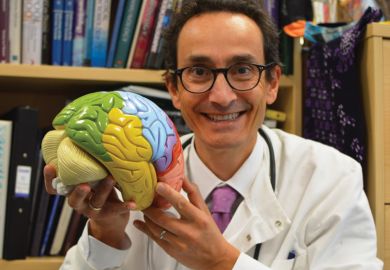What sorts of books inspired you as a child?
I remember reading in my early teens on themes of scientific and medical discoveries, struggle and transformation (Joanne Greenberg’s I Never Promised You a Rose Garden stands out), and alternative worlds (Robert Heinlein, Arthur C. Clarke) that are still important to me today. By early college, I was inspired by more existentially oriented reading such as Albert Camus (The Plague), Ayn Rand (The Fountainhead), Doris Lessing (The Golden Notebook) and Hermann Hesse (The Glass Bead Game) as I began seeking out my own direction in life.
Which books prompted you to work in religious studies?
It was not so much books as a freshman theory of religion course, coupled with the sense that studying religion addressed the big questions. Only after a year of medical school did I take up a path that allowed me to focus on the big questions.
Which books would you recommend as giving vivid insiders’ accounts of particular religious or spiritual experiences?
Anthropologist Paul Stoller’s Stranger in the Village of the Sick: A Memoir of Cancer, Sorcery, and Healing looks back on his time among the Songhay of Niger, his apprenticeship to a Songhay sorcerer, his study of West African traders in New York City and his immersion in the US medical system after a cancer diagnosis. During treatment, he felt the presence of his Songhay teacher, who coached him along the uncertain path to recovery. Tony Kushner’s play Angels in America is a brilliant demonstration of how the appearance of angels and ghosts – in this case imagined – could help survivors work through loss and grief due to Aids. As many of us grieve for Hillary Clinton’s loss, Kushner’s complex treatment of Donald Trump’s mentor Roy Cohn particularly stands out.
Your new book, Revelatory Events, explores three ‘new spiritual paths’ represented by Mormonism, Alcoholics Anonymous and A New Course in Miracles. Which texts most influenced the style of analysis you adopt?
In When God Talks Back: Understanding the American Evangelical Relationship with God, Tanya Luhrmann – anthropologist and long-time conversation partner – modelled the mix of empathy and explanation that I aimed for. My approach to the emerging spiritual paths was shaped by scholarship on early Christianity that teased apart texts to identify layers of development. Wayne Proudfoot’s Religious Experience, with its insistence on the importance of both descriptive analysis and scientific explanation, influenced my decision to divide the book into two distinct parts.
What was the last book you gave as a gift, and to whom?
Katherine Cramer’s The Politics of Resentment, to my husband. We are trying to understand the presidential election.
What books do you have on your desk waiting to be read?
I’ve started Richard Dawkins’ The Ancestor’s Tale. Next in line are Emma Donoghue’s The Wonder on my Kindle and Clark Barrett’s The Shape of Thought on my desk.
Ann Taves is professor of religious studies at the University of California, Santa Barbara. Her latest book is Revelatory Events: Three Case Studies of the Emergence of New Spiritual Paths (Princeton University Press).
POSTSCRIPT:
Print headline: Shelf Life
Register to continue
Why register?
- Registration is free and only takes a moment
- Once registered, you can read 3 articles a month
- Sign up for our newsletter
Subscribe
Or subscribe for unlimited access to:
- Unlimited access to news, views, insights & reviews
- Digital editions
- Digital access to THE’s university and college rankings analysis
Already registered or a current subscriber?




